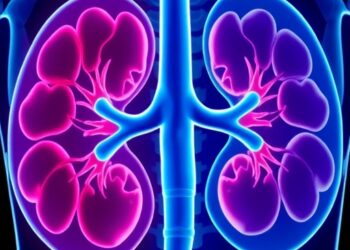In an innovative study published in a leading scientific journal, an international team of researchers led by Prof. Wangjun Liao from Nanfang Hospital, Southern Medical University has identified metabolic signatures that can predict immunotherapy response and survival outcomes in cancer patients. The study underscores the critical role of metabolic reprogramming in the tumor microenvironment and its impact on immunotherapy effectiveness.
In an innovative study published in a leading scientific journal, an international team of researchers led by Prof. Wangjun Liao from Nanfang Hospital, Southern Medical University has identified metabolic signatures that can predict immunotherapy response and survival outcomes in cancer patients. The study underscores the critical role of metabolic reprogramming in the tumor microenvironment and its impact on immunotherapy effectiveness.
The research utilized data from the IMvigor210 trial, which included 348 patients with bladder cancer treated with the PD-L1 inhibitor atezolizumab. The team performed a comprehensive analysis of metabolism-related genes using a non-negative matrix factorization approach, identifying four distinct metabolic classes with significant variations in overall survival (OS).
“Our analysis revealed that patients classified as metabolism-inactive with low hypoxia levels had the most favorable outcomes,” says Prof. Liao. “These findings highlight the potential of metabolic profiling to improve the precision of immunotherapy treatments.”
The study introduced a deep learning-based metabolic score that showed high accuracy in predicting immunotherapy benefits (AUC: 0.93 at 12 months). This score was validated across multiple datasets, including metastatic urothelial carcinoma, melanoma, and non-small cell lung cancer, demonstrating its robustness and applicability to various cancer types.
One of the key discoveries was the identification of SETD3 as a crucial gene associated with improved OS outcomes. “SETD3 emerged as a promising prognostic marker, linking metabolic activity with patient outcomes,” explains Prof. Liao. “This could pave the way for integrating metabolic profiling into immunotherapy strategies, enhancing treatment precision and efficacy.”
The study also found that the metabolic score could classify patients with high and low immunotherapy responses, providing a potential tool for clinicians to tailor treatments based on metabolic profiling. Further analyses indicated a positive correlation between the metabolic score and immune cell infiltration, neoantigen levels, and tumor mutation burden, reinforcing the importance of metabolism in cancer immunotherapy.
“Our findings suggest that understanding metabolic reprogramming in tumors can provide valuable insights into patient prognosis and therapy response,” says Prof. Liao. “We hope this study encourages further research into metabolic biomarkers and their integration into clinical practice.”
See the article:
Unraveling the Influence of Metabolic Signatures on Immune Dynamics for Predicting Immunotherapy Response and Survival in Cancer
Journal
MedComm – Future Medicine
DOI
Method of Research
Computational simulation/modeling
Subject of Research
People
Article Title
Unraveling the influence of metabolic signatures on immune dynamics for predicting immunotherapy response and survival in cancer
Article Publication Date
25-Jun-2024
COI Statement
The authors declare no conflict of interest.




